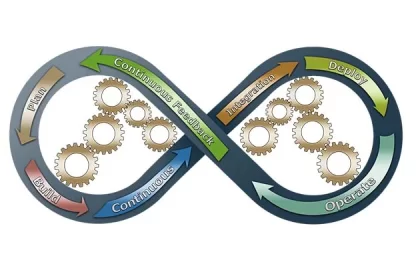Decentralized casinos structured as Decentralized Autonomous Organization (DAOs) introduce an alternative structure for online gambling. These platforms run on blockchain infrastructure, using smart contracts to handle gameplay, transactions, and platform governance. Rather than relying on a single operator, decision-making is opened up to users who hold tokens, allowing them to vote on proposals and manage changes directly.
This approach allows participation to go beyond betting. Players are able to influence the direction of the platform and have a role in shaping how rewards, fees, and even game libraries are structured. With transparent transactions and publicly accessible records, these systems offer a view into platform operations that is generally unavailable in centralized models.
Community Governance and Platform Transparency
One of the most important elements of decentralized casino projects is community governance. Token holders are encouraged to participate in governance decisions, not just games. This shared ownership can include proposal rights, revenue distribution mechanisms, and incentives that are based on player activity and support. Because these elements are managed by smart contracts, outcomes are enforced automatically, and the rules are accessible for scrutiny.
Crypto casino sites are often evaluated on factors such as payment speed, platform transparency, bonus structures, and fund security. These are criteria that DAO-run models are well-positioned to meet. With verifiable smart contracts and decentralized fund management, these platforms are now being used as reference points for how online gambling environments can operate more openly and reliably.
There is no single template. Different DAO-run casinos manage governance in different ways, but many give users direct influence over development roadmaps, game listings, and incentive structures. Some include staking models or reward pools. In contrast to traditional setups, where players are customers with no say in operations, this approach gives regular users a stake in the platform’s direction.
Transparency in transactions remains a key feature in these models. Because data is recorded on the blockchain, players can verify where funds move, how games are settled, and whether revenue is distributed fairly. This level of visibility contributes to trust and helps distinguish decentralized gambling projects from more opaque online casinos.
User Experience, Operational Efficiencies, and Market Expansion
In terms of user experience, some decentralized casinos already operate with features like near-instant withdrawals, low processing fees, and provably fair algorithms. These are often cited among the benefits of automating systems through smart contracts and removing intermediaries. By reducing overheads and cutting out many administrative layers, projects can prioritize higher payout rates or offer other incentives based on how users interact with the platform.
Available data suggest growing community participation. DAO-managed platforms have already begun testing features that blend governance with DeFi tools or NFT-backed access models. Other projects are focused on linking DAO frameworks with broader crypto economies or tying participation to social tokens. This gradual integration points toward ecosystems where players not only wager but also contribute to shaping future platform policies. Such developments illustrate how market expansion, user engagement, and operational efficiency increasingly intersect in the decentralized casino space.
Market Growth and Economic Scale in 2025
In 2025, decentralized crypto casinos represent one of the fastest-growing segments within the broader online gambling industry. The scale of activity in this space reflects both the maturity of blockchain-based infrastructure and changing user preferences around transaction speed, site openness, and ownership.
Crypto casinos generated an estimated $81.4 billion in revenue in 2024, marking a fivefold increase compared to 2019 figures. This includes both decentralized platforms and broader crypto gambling operations, where blockchain tools have been used to enable transparent and cost-effective gameplay. The momentum has continued into 2025, with these platforms now accounting for a considerable proportion of all online wagers globally.
Leading decentralized operators now process betting volumes on a scale once limited to centralized environments, with some platforms handling billions in wagers each month. This liquidity underscores both the depth of their user base and their operational viability at high volumes.
At a broader level, the global online gambling market is projected to reach 105.5 billion in 2025, with growth forecasts suggesting expansion to $286.4 billion by 2035. A big part of this expansion is expected to come from decentralized models, which benefit from operational cost advantages. By automating functions through smart contracts and removing chargebacks or third-party processors, decentralized platforms can reduce expenses by around 30%. These savings can be redirected into better payout rates or user rewards, reinforcing their competitiveness.
The data supports the idea that decentralized gambling is no longer a marginal experiment. It is now positioned as a serious alternative within the digital gaming economy, with increasing traction among both casual users and those seeking participatory ownership structures.
Conclusion
Decentralized casinos offer a different kind of setup, one where players aren’t just participants, but have a say in how the platform runs. Instead of everything being controlled by a single company, users can help shape decisions and get a share of what the platform earns. Instead of everything being controlled by a single company, users can help shape decisions and get a share of what the platform earns. As these platforms mature, more projects are experimenting with features like loyalty-based rewards, gamified governance, and integrations with crypto wallets or NFT collections. Centralized platforms still make up most of the market, but community-run casinos are gaining ground, especially with users who are already comfortable with digital currencies.










